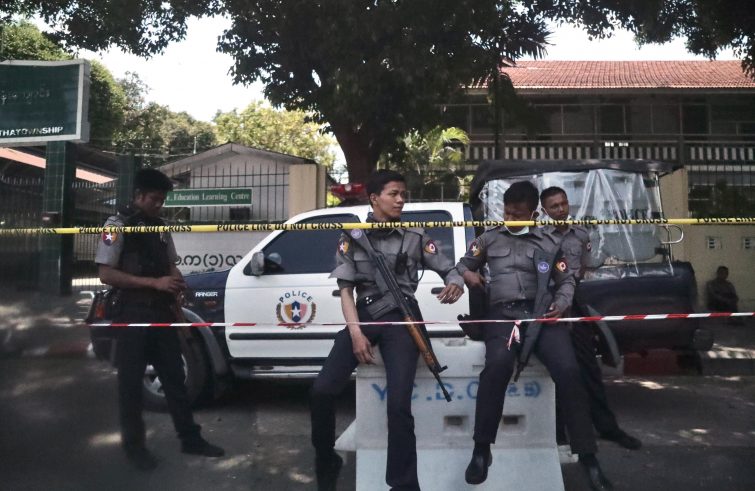
A “slow-paced genocide.” This is what is happening in Myanmar where the military continue targeting civilians, with arsons and destruction of houses, schools, hospitals and places of worship; where it’s hard to deliver humanitarian aid to displaced people and where the chances of dying from hunger and disease increase by the day. Contacted by SIR; Father Maurice Moe Aung, an Italy-based missionary from Loikaw, provides an overview of the situation in Burma. His photos depict refugees living in the jungle, corpses of women, buildings ablaze. “This is happening in Kayah State. People are fleeing into the jungle to shelter from brutal and disproportionate violence. They reached the city of Loikaw, where heavy artillery was fired on a house yesterday: a boy was killed and his brother was brought to hospital. Myanmar’s military is making unprecedented use of force. And the jungle is also fraught with perils: lack of food, hygiene and clean water risk causing the spread of malaria and dysentery.” But no place in the country is safe. Yesterday a Muslim school was set on fire in the capital Yangon.
Since the military seized power in a coup d’état on Feb. 1, clashes against regional ethnic autonomies have reignited in Myanmar, plunging the country into an abyss of widespread civil war. This is currently the case in Karen State on the border with Thailand, in Chin State on the border with India, and in Kachin and Kayah States. Violent clashes are raging throughout, between the junta forces and the People’s Defence Force comprising civil resistance fighters. Internally displaced persons are increasing. “Genocide is not an inaccurate term to describe what is happening”, said Father Maurice, “given the disproportionate use of violence, the indiscriminate attacks, including against women and children, and the use of weapons. They are dividing the people, setting one against the other, Buddhists against Muslims, ethnic groups against other ethnic groups.
Luckily, compared to the past, people are familiar with these old tactics and are not easily divided. In fact the population is much more united than it used to be, with no distinction based on race or faith in the fight for democracy and peace.
The majority of the population in Kayah State is Catholic, hence the Church is at the forefront in providing assistance by setting up refugee camps and distributing medicine and food supplies. “An increasing number of people are leaving their homes because they no longer feel safe, and without the help of the local Church, they would have no chance of survival.”
Volunteers and clergy are attempting to distribute foreign aid, but it’s extremely difficult. The military barred access to humanitarian aid.
“Us priests, with our cassocks, white flags and permits, are the only ones allowed to travel, but not all the locations can be reached. We therefore reach the nearest villages where the local population arranges the delivery of emergency supplies to the camps. They even come on foot, carrying heavy sacks on their shoulders. Two young men were killed a few days ago while delivering aids on scooters to displaced people. Shots were fired even inside an old-age home run by nuns.”
Unfortunately, the “five-point consensus” on the crisis in Myanmar agreed by ASEAN leaders at a special summit past April was to no avail. The agreement called for an “immediate cessation of violence in Myanmar” and for “utmost restraint.” ASEAN leaders urged all warring parties to engage in constructive dialogue and “facilitate a peaceful solution in the interest of the people.” Finally, it was decided that ASEAN would appoint a special envoy to mediate in the Myanmar crisis. “Our appeal,” said Father Maurice, “remains the same: to put down the weapons and resume a civil dialogue. But the military are hard-hearted and unwilling to comply with the agreements.
There are no prospects for the children who sought refuge in the jungle. None whatsoever. Without the help of the Church, they have no hope. We are facing a slow-paced genocide.”
















